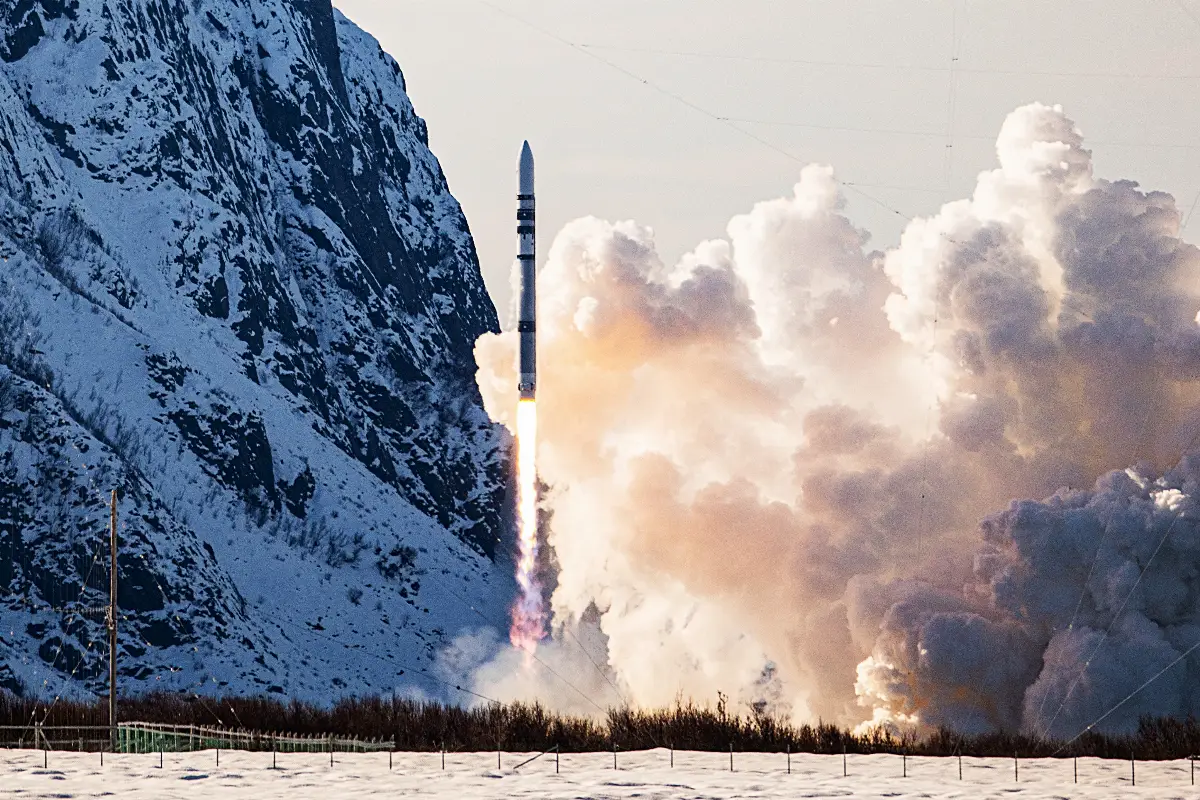
Spectrum (Isar Aerospace) first orbital launch: failure or success?
An anomaly after takeoff caused it to lose control, crash and explode in the sea/VIDEO

The first orbital launch of the Spectrum rocket, developed by German start-up Isar Aerospace, ended yesterday with an explosion in the sea just seconds after liftoff from Andøya, Norway. The event has sparked mixed reactions: international media have called the launch a failure, while Isar Aerospace issued a press release calling it a success.
Spectrum had an anomaly shortly after takeoff that caused it to lose control, crash into the sea and explode. The launch had been postponed several times due to adverse weather conditions. The accident occurred a few seconds after launch, and images of the explosion were widely broadcast by the media (see video below), which called the attempt a failure, emphasizing the loss of the rocket and the failure to reach orbit. Some media highlighted the difficulties encountered by the German start-up in its attempt to launch an orbital rocket from Europe.
On the other hand, in the note issued yesterday, Isar Aerospace stated that all the objectives set have been achieved. The startup stressed that the launch was a test and that valuable data was collected for the future development of Spectrum. The company also highlighted that the launch demonstrated the company's ability to design, build and launch rockets, and therefore announced that it will continue to work on the development of Spectrum, a lightweight two-stage launcher designed to transport small satellites into Low Earth Orbit (LEO), which uses liquid propellants, considered more efficient and less polluting than solid ones. The launcher is designed to carry up to 1000 kg of payload into orbit, and is characterized by the use of reusable engines, with the aim of reducing launch costs.
Isar Aerospace was founded in 2018 in Munich, Germany, by Daniel Metzler, Markus Brandl and Josef Fleischmann, with the aim of providing flexible and cost-effective space launch services for small satellites, and with the ambition of becoming a key player in the rapidly growing European space launch market. It has raised significant funding from private and institutional investors, including the German government and the European Space Agency (ESA), and fits into the context of the European "New Space Economy", aiming to secure Europe's independent access to space.
In the video below of "The Launch Pad", images of the launch:
AVIONEWS - World Aeronautical Press Agency